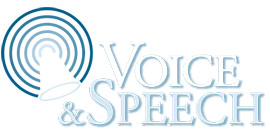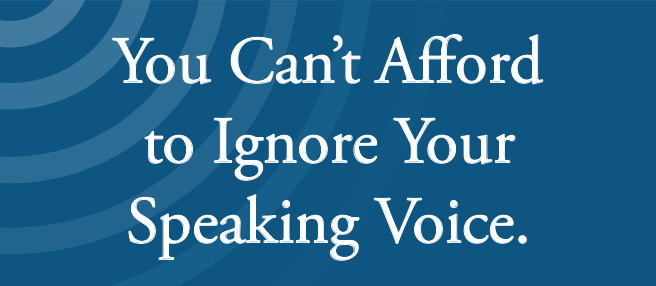Speaking Fast
Three Cures for Fast Speech
One of the top four issues I confront while coaching speakers is the problem of fast speech. If this particular shoe fits, you might chuckle and shrug it off as a pesky little problem, but it has serious consequences for your communication. Fast talkers tend to mumble more, project poorly, sound monotone and are taken less seriously.
You already know that telling yourself to slow down doesn’t work. It’s too distracting and not sustainable. Besides, speaking fast is a habit. It feels right to you. Forcing yourself to speak slower feels fake and unnatural. The key to curing fast speech is to reinforce skills that naturally inhibit your ability to talk fast.
The most important competing skill is breathing. When you speak fast, it’s hard to breathe well. You take quick shallow breaths and try to make them last way too long. You feel rushed and breathless. Learn to pause frequently, every 6-8 words, to replenish your breath. You’ll feel relaxed, sound deliberate and strong, and slow down without even thinking about it.
Relaxing your jaw and opening your mouth will naturally slow down your speech. If you’re a fast talker you can’t open your mouth very far. That makes your voice smaller and you’re more prone to mumbling. When you relax your lower jaw and cultivate more openness you’ll find your rate of speech slowing automatically because it takes time for your jaw to travel that extra distance.
Vowel resonance is another effective strategy. Speaking fast shortens vowel sounds, and since the sound of your voice is heard mostly in the vowels, your voice becomes small and shallow. Listeners have difficulty understanding you. By lengthening vowel sounds, you start to feel and enjoy the rich potential for sound vibrations in your body. There’s a natural incentive to cultivate and prolong that feeling which automatically slows your pace.
Don’t just blush and say, “I know, I talk too fast.” Speaking fast robs you of clarity, authority and credibility. It will ultimately become a personal and professional handicap. You need to start changing the habit now. Techniques such as breathing, jaw relaxation and resonance actually work, but they take time to develop and apply, so get started and do the practice required.
Every speaker you admire is deliberate and in control, not swept along by bad habits. You can speak like that, too. With a bit of learning and consistent practice you can communicate in a relaxed and confident manner. Listeners will pay attention, consider your perspective and respect your contribution. You’ll have presence, credibility and influence.
Sign up for my free mini course and start to learn the techniques that will increase your confidence and your influence today.

